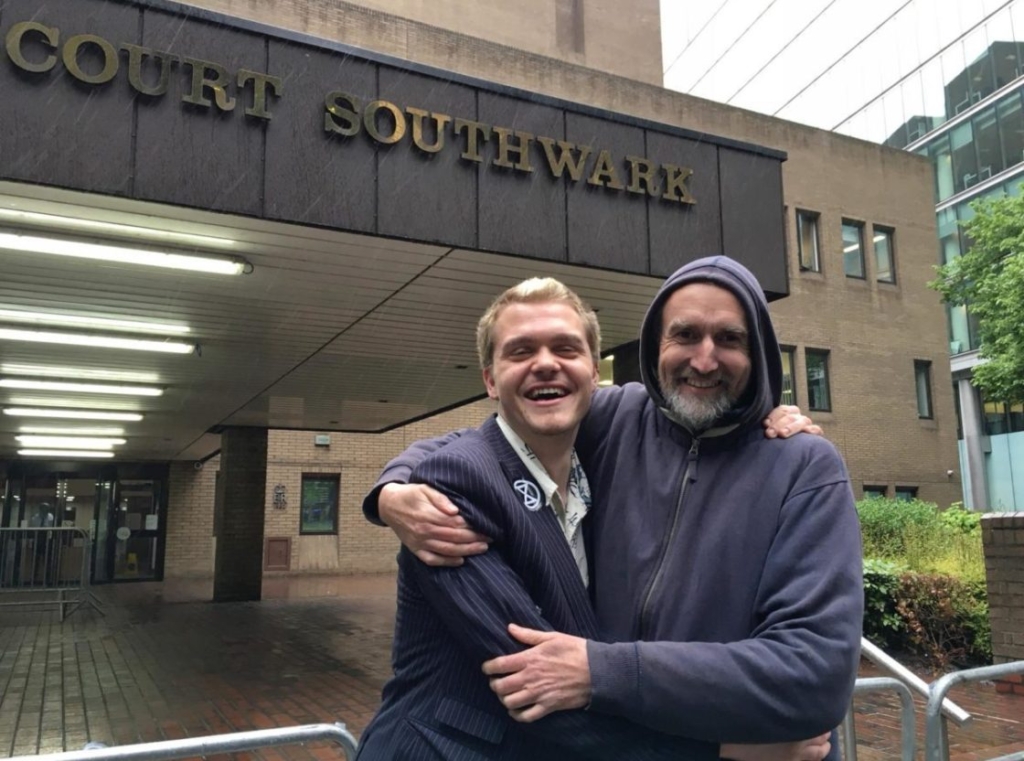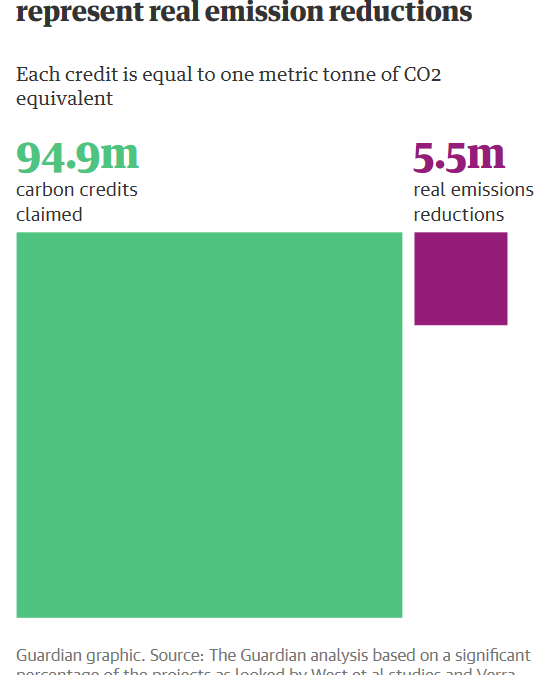Climate activists win necessity defense case in London

By Isabella Kaminski
10 May 2019
(Climate Liability News) – Two climate change protesters were acquitted of criminal damage in the United Kingdom in a rare success using what has been called the necessity defense to justify civil disobedience.
A jury in Southwark Crown Court in London took the minimum time of two hours to reach a unanimous ‘not guilty’ verdict for Roger Hallam and David Durant, despite instructions from the judge that they should not consider the defendants’ claim that their actions were necessary to address the climate crisis.
“When ordinary people faced the truth, they understand the climate and ecological emergency better than our politicians,” said Hallam, one of the co-founders of Extinction Rebellion, an action group that staged high-profile protests that disrupted large parts of central London last month.
Both men had been charged with criminal damage following a fossil fuel divestment campaign in 2017. Hallam, Durant and six others had sprayed chalk paint inside a building at King’s College. Four of the people involved were released without charge, while the other two pleaded guilty in court.
Hallam, 52, was also charged with a separate offense of criminal damage, for painting the words ‘divest from oil and gas’ on a wall at King’s College a month earlier.
Hallam and Durant were charged with causing nearly $10,000 (£7,000) of damage and faced a maximum sentence of 18 months in prison.
Both men represented themselves in the three-day trial. Durant said they could not afford a lawyer and were not eligible for legal aid, and they also believed by arguing their own case they had “a bit more leeway to make arguments that our lawyer didn’t want to make. We wanted to present ourselves as just normal people to a jury.”
Both admitted they had caused the damage but pleaded not guilty, arguing that their actions were a proportionate response to the climate crisis.
The judge, Michael Gledhill QC, repeatedly interrupted Hallam and Durant, saying climate change was “irrelevant” to the case and told the jury that the defendants could not rely on the necessity defense.
“We were shut down quite a lot,” Durant said. “We’d try to read out case law and we were shut down.” He said he and Hallam snuck climate arguments into their defense and were helped when the prosecution showed clips of their filmed divestment campaign. “That was really handy,” he said. “That was making the case for us.”
Durant, 25, said the 2017 campaign was successful because King’s College London subsequently announced it would divest £14 million from fossil fuels and pledged to become carbon neutral by 2025. “Now I’ve won this court case it feels like I’ve won again,” he said. [more]


